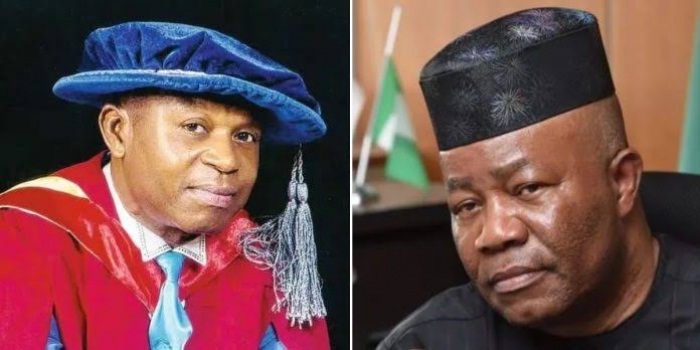The Court of Appeal in Calabar has upheld the conviction and three-year prison sentence of Peter Ogban, a professor of soil science at the University of Calabar, for manipulating the outcome of the 2019 senatorial election in Akwa Ibom North-West District in favour of Godswill Akpabio, now President of the Nigerian Senate.
Ogban, who served as the returning officer in the contentious election, was first convicted in March 2021 by the Akwa Ibom State High Court in Uyo. The court found him guilty of falsifying election results in Oruk Anam and Etim Ekpo local government areas, unlawfully inflating the vote tally of the All Progressives Congress (APC) at the expense of the Peoples Democratic Party (PDP). He was sentenced to three years imprisonment and fined N100,000.
The appellate court reaffirmed the verdict, condemning Ogban’s actions as a gross abuse of academic and professional trust and a betrayal of public confidence in Nigeria’s electoral process. During his trial, the Independent National Electoral Commission (INEC) prosecuted Ogban, who admitted under oath to altering results, including adding 5,000 fictitious votes to the APC’s total in one local government area. He pleaded for leniency, but trial judge Justice Augustine Odokwo insisted the law must take its course, calling the case “novel” and precedent-setting.
Ogban had argued in court that he merely collated figures submitted by local government polling officers and did not personally manipulate the results. However, the court found this defense unconvincing given the deliberate inflation of votes in specific areas.
The judgment has sparked widespread reactions across social media, with many Nigerians questioning why Akpabio, the main beneficiary of the manipulated results, continues to serve in high public office.
One user, Lawal Ahmed, wrote, “Then what’s Akpabio still doing in the upper chamber?” Another, Peter Johnson, lamented, “What pains me most is how professors who spent years researching and teaching would rig elections for politicians who don’t even have complete WAEC results.”
Others, like Dave Adode, expressed outrage: “Akpabio should also face the penalty. The Professor has dragged his name in the mud; his family will suffer shame, and he cannot enjoy the money. Money don go; prison don come, Akpabio dey free.”
Critics argue that while Ogban is facing justice, Akpabio not only walked free but contested again in 2023, won, and is now Senate President. Some called for his resignation or fresh legal scrutiny into his electoral victories.
Ogban’s case is not isolated. In February 2025, another academic, Ignatius Uduk of the University of Uyo, was also sentenced to three years in prison for publishing false results during the 2019 state house of assembly elections in the same Akwa Ibom North-West zone.
As these convictions continue to stir national debate, many Nigerians are calling for broader accountability in the electoral system, especially among those who benefit from manipulated results.
